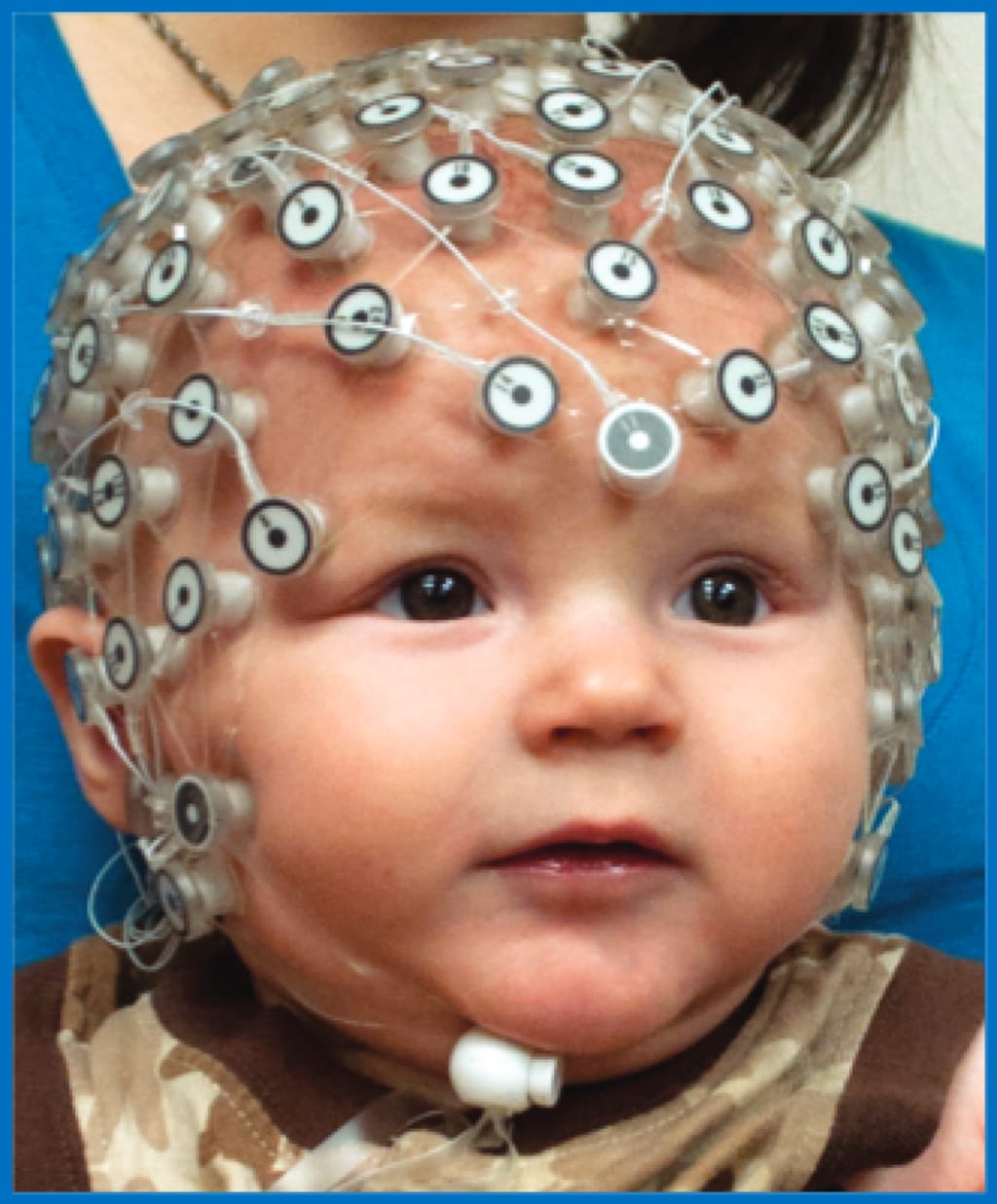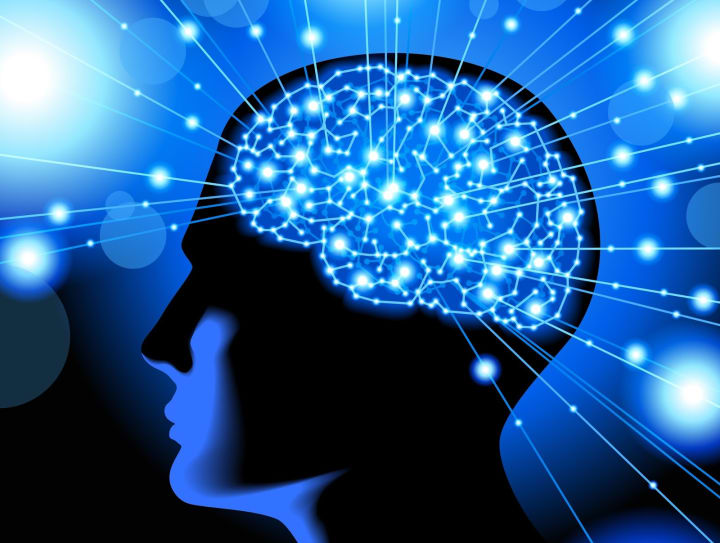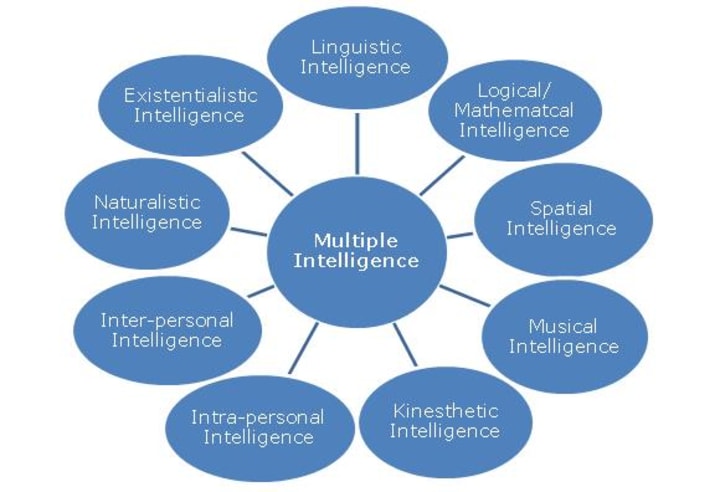There is more than one kind of intelligence, as shown by many indicators.
Many different perspectives on what constitutes human intelligence have been proposed by psychologists and other experts.

How do we assess mental capacity?
The term "intelligence quotient" (IQ) testing is certainly familiar to you. These tests were developed with the express purpose of gauging talent and skill.
However, IQ is not the only indicator of intelligence.
Reasoning, memory, and problem-solving are just few of the abilities that may be gauged with an IQ test. They are unable to capture your whole range of talents.
Creativity and emotional intelligence are two talents not measured by IQ testing.
Scores on intelligence tests may not be indicative of true IQ because of cultural differences in test takers' familiarity with test ideas and organization.
People with autism may be more intelligent than IQ testing show, according to a 2016 analysis of the available evidence (Reliable Source). This intellect is simply unbalanced, which may have a chilling effect on interpersonal relationships and productivity.
Intelligence in a variety of forms
Scientists According to Reliable Source, intelligence is defined as the capacity to use one's experiences to either change one's surroundings or make conscious decisions about those changes. It is measured by a variety of intelligence tests and scales.
However, there are those in the know who argue that a single test can't accurately portray a person's IQ. They propose that different forms of intelligence should be taken into account.
Here is a list of them:
a person with intelligence A linguistic sensitivity to both spoken and written language; the capacity to utilize language to accomplish one's aims is included among the skills and talents.
logical or mathematical ability to perform logical analysis, mathematical tasks, and scientific research spatial awareness of an ability to use wide space and smaller patterns, as in geometry bodily-kinesthetic ability to use one's entire body to create, perform, or solve problems logical or mathematical ability to perform logical analysis, mathematical tasks, and scientific research
creating, performing, and enjoying music as well as musical patterns are all talents that go under the umbrella term "musical."
interpersonal capacity to comprehend the intents and wants of other people, which allows a person to work effectively with other individuals and fosters positive relationships.
intrapersonal capacity of an individual to contemplate and gain an understanding of oneself, including their emotions, motives, and capabilities
The identification and categorization of various natural phenomena, such as species, weather patterns, and other occurrences, by naturally

However, there are a few issues that arise from using this system. One reason for this is because it is difficult to evaluate or quantify them, as well as to differentiate them from one another. For instance, one may make the case that organizing species into categories is a scientific endeavor and, as a result, demonstrates logical reasoning.
The following is a list of additional words that are often used to characterize intelligent people:
a person's level of emotional intelligence may be measured by how they react to their own feelings and the feelings of others.
a sexually intelligent person is one who is knowledgeable of the many aspects of sexuality and has sexual intelligence.
social intelligence, akin to Gardner's interpersonal intelligence.
How would you characterize your intelligence?
Although methods such as Gardner's might not be flawless, considering how well they apply to you can help you better understand your capabilities.
Here is a list of 11 aptitudes or talents that you may investigate, and doing so could also help you learn which sorts of intellect you possess to the greatest degree.
1. You have a compassionate nature.
One of the most important aspects of emotional intelligence is the capacity for empathy, which may be defined as the skill of being able to see events from the viewpoint of another person.
The capacity to comprehend one's feelings and to communicate those feelings in ways that are beneficial to oneself and to others is referred to as emotional intelligence (EQ).
Recognizing your own feelings is a necessary first step; nevertheless, those with high emotional intelligence also have a fairly good understanding of the thoughts and emotions of others around them.
If you have a high level of empathy, you can typically tell when other people are going through difficult times, usually by picking up on subtle cues in their body language or behavior. Another manifestation of empathy is a more profound degree of attention and acceptance of the many experiences that other people have had.
Empathy, like any other talent, can be strengthened with practice; thus, increasing your awareness of other people and vocalizing your care for them will help you acquire even greater emotional intelligence.
The following is a list of suggestions for enhancing emotional intelligence:
Figure out how to take control of your impulsive thoughts, emotions, and actions.
Consider your feelings as well as the ways in which they influence your ideas and actions.
Recognize both your talents and your flaws, and search for methods to increase your self-confidence by practicing being proactive and honoring your commitments. Also, acknowledge the areas in which you fall short.
Pay careful attention to the sentiments, requirements, and worries of individuals who are close to you.
observe and get an understanding of the power dynamics at play in a group setting. Clear communication, seeking the input and guidance of others in group settings, and practicing conflict resolution rather than escalating existing tensions are all important.
These kinds of behaviors may help to the maintenance of solid relationships both inside a team and with other people. Additionally, it can assist individuals in accomplishing their objectives and enhance the general quality of life they enjoy.

2. You have a strong understanding of who you are.
One component of developing self-awareness is being aware of the things you need from the relationships you have.
Your own sense of identity is connected, among other things, to how you see yourself in relation to:
characteristics and competencies
ideals that guide one's life, important life goals and ambitions, and other identifying traits
Because a strong sense of self-identity almost always means you, having a well-developed sense of self is indicative of a high level of intelligence.
Have confidence in who you are and understand where your strengths lie.
having the self-assurance to make decisions that are congruent with your values.
Finding out these facts about oneself might be a process that takes some time. Even once you have firmly established your own identity, it may still need some work to:
You should not be afraid to openly express yourself and respect the limits that you have established for yourself.
selecting a course of action that is in accordance with one's own code or ideals.
Still have more work to do? Don't worry; we've got some pointers that may help you get started on your own voyage of self-discovery.
3. You have a strong ability to control your emotions.
At some point or another, every single person struggles with unpleasant or unwelcome feelings. That is a natural occurrence in everyone's life. However, how you deal with these feelings can reveal a lot about the level of emotional intelligence you possess.
In general, those who have a high emotional intelligence are able to:
identify complicated emotions
Gain an understanding of the ways in which those feelings influence choices and actions, and then respond to those feelings in a productive manner while exercising self-control and expressing feelings at the appropriate times.
express sentiments in a manner that is secure and conducive to good health.
Emotional regulation abilities, much like the other components of emotional intelligence, may be developed via practice. Use these guidelines as a starting point to improve your ability to regulate your emotions.
About the Creator
Jacob Damian
Whether you're looking to learn something new, explore different perspectives, or simply satisfy your curiosity, I can offer you insights and perspectives that you may not have considered before. With my ability to process and analyse.






Comments
There are no comments for this story
Be the first to respond and start the conversation.